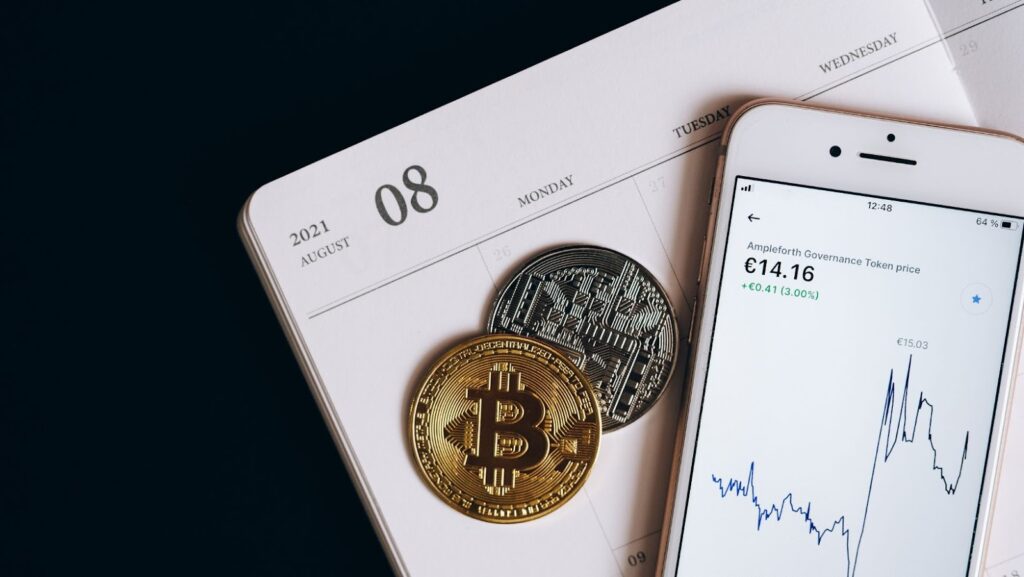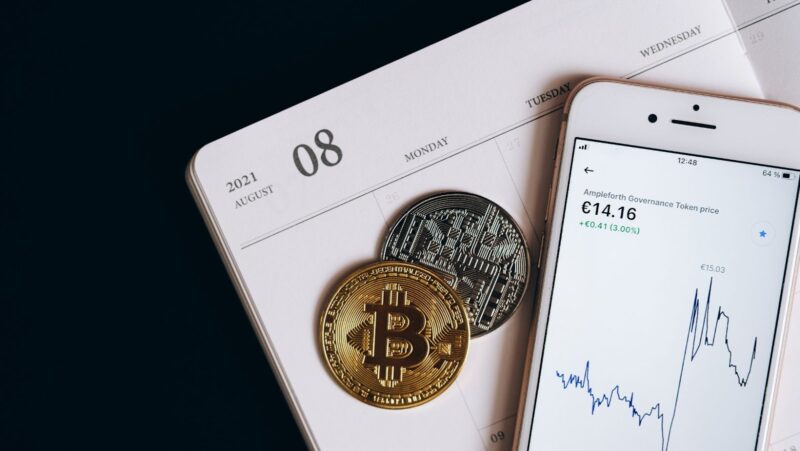
In 2018, the U.S. Securities and Exchange Commission (SEC) charged BitConnect founder Craig S. Grant and several other defendants with orchestrating a $2 billion Ponzi scheme. The SEC alleged that “they lured investors with false promises of outlandish returns and used their ill-gotten gains to enrich themselves.”
This Ponzi scheme is a case study for what can happen when fraud and greed go unchecked. In this article, we will explore the lessons that can be learned from the BitConnect Ponzi scheme and what investors can do to protect themselves from similar scams.
BitConnect founder charged with orchestrating $2 billion Ponzi scheme
A Ponzi scheme is a fraudulent investing scam that involves the payment of purported returns to existing investors from funds contributed by new investors. The Ponzi scheme generates returns for older investors by acquiring new investors, rather than from any legitimate business activity or profit of financial trading. In some cases, the returns may be extremely high, making the scheme attractive to investors.
The term “Ponzi scheme” describes a variety of investment schemes where money is taken from one group of people for the benefit of another group of individuals. This type of fraud often entices participants with promises of abnormally high returns on investments and relies heavily on social proof in order to attract even more people into the scheme.
The BitConnect Ponzi scheme was no exception, with its anonymous founders claiming astronomically high investment returns in their fraudulently traded Bitcoin-backed lending platform. In 2020, after several years in operation, its operators were charged with running what’s been described as “one of the largest crypto-related frauds ever”. By working the financial system and convincing naïve investors to sign up for their services on pretences, BitConnect amassed millions and ultimately lost billions—both in actual money and market capitalization—when its platform was shut down amid allegations of embezzlement and criminal activities related to its dodgy lending operations.
The lessons that can be learned from this scandal are simple: never trust anyone who promises attractively high returns; knowledge is power—do your research before investing; don’t invest based purely on social proof; if something seems too good to be true—it probably is; question deals involving pyramid or referral models; listen carefully for words like ‘guaranteed return’ or ‘high risk/high reward’ that could indicate a fraudulent investment situation; lastly but most importantly: if it looks like a duck (or a Ponzi Scheme), quacks like a duck (or scams unwitting victims out of their money): it probably IS a duck (undoable scam).
What is BitConnect?
BitConnect was a cryptocurrency investment platform founded in 2016 by English-based entrepreneur, Divyesh Darji. BitConnect offered users the option to invest their cryptocurrency holdings and, in theory, receive daily returns in exchange for interested parties contributing their Bitcoin or Bitcoin Cash to the system. Returns were based on a “volatility software trading bot” that promised guaranteed returns as high as 40% per month.
However, federal authorities eventually uncovered that BitConnect was an illegal Ponzi scheme by Darji and his co-conspirators. In 2020, the U.S. Department of Justice charged the company’s founder with orchestrating a $2 billion fraud while deceiving investors and using those funds for personal projects.
The BitConnect case serves as an important reminder to potential cryptocurrency investors – do your due diligence before investing in any asset or currency! Many projects have been exposed as fraudulent over the years; lack of regulation can mean that investments are more vulnerable to fraudsters than other forms of investment and it pays not to risk your hard-earned money without superb knowledge about currencies and market environment (past performance does not always guarantee future growth). Furthermore, remain extremely sceptical with schemes promising incredibly high returns in such a short time – if it sounds too good to be true, hopes are it probably is!
BitConnect’s History
BitConnect, a cryptocurrency platform originally operating through a lending and exchange platform, has received significant scrutiny due to its founder, Divyesh Darji, being charged with orchestrating a $2 billion Ponzi scheme.
Despite BitConnect no longer operational, examining its history and the lessons to be learnt is important to ensure that similar scams cannot be perpetrated in the future.
How BitConnect started
BitConnect was purported to be a lending and exchange platform that connected investors with a high-yield investment program. It was founded in 2016 by Divyesh Darji, Saseendran Pallippuram, and alleged involvement from other parties.
The BitConnect coin (BCC) was introduced as the project’s main cryptocurrency, and its value rapidly appreciated over 800%. It drew much attention from investors as it promised high interest payouts through a multilevel marketing scheme, where users received referral commissions up to 40% upon recruiting new members. Practically anyone with an internet connection and some spare cash could become part of the highly lucrative BitConnect pyramid scheme – investing money in BCC “loans” was promoted by dozens of prominent YouTubers who expected a great return on their investments.
However, it soon became apparent that BitConnect had no viable product or service and operated as an illegal securities exchange organisation. In January 2018, their website went down after both US and UK regulators issued cease-and-desist orders against the Bitcoin investment platform for operating as an unregistered securities offering – thus putting an end to one of the largest Ponzi schemes of all time. However, in April 2020, Saseendran Pallippuram (one of the co-founders) was charged with orchestrating a $2 billion Ponzi scheme which led millions to invest in what has been described as ‘a crypto-driven scam’.
How BitConnect grew
BitConnect was founded in February 2016 as a Bitcoin-based Ponzi/pyramid scheme, and grew rapidly throughout the next two years. The platform allowed users to invest bitcoin, which was then given to members of the BitConnect team in exchange for BitConnect Coins (also known as BCC), which could be traded on digital exchanges. The founders claimed that the platform’s computer algorithms automatically traded bitcoins and other digital currencies and generated returns based on fluctuating cryptocurrency prices.
In 2017, BitConnect peaked with a total market capitalization of over USD 2.6 billion and an average daily trading volume of over USD 100 million. While many people bought into the company’s claims of high returns that could be gained from holding BCC, there were signs that something was not quite right with the company’s business model. Critics argued that since the platform operated without regulatory oversight or transparency requirements, it was likely not under duress to ensure customer funds were properly invested or managed.
In January 2018, Texas and North Carolina government authorities issued cease-and-desist orders against BitConnect for violating state securities laws. Following these orders, Bitconnect abruptly shut down its operations leaving many users with large losses due to their investments in BCC coins that had become worthless overnight. In April 2021, U.S prosecutors charged Divyesh Darji (BitConnect founder) with running a global $2 billion fraud by orchestrating one of the “largest cryptocurrency Ponzi schemes ever” while luring investors by guaranteeing returns up to 40%.
The collapse of Bitconnect serves as an important reminder for investors to do their due diligence before investing in Ponzi schemes or cryptocurrencies like BCC coins where there is little transparency about how customer funds are being used or where they’re being invested too.
BitConnect’s Collapse
BitConnect’s user base of more than 1.5 million people at its peak was one of the most successful Ponzi schemes in history. However, it quickly unravelled when its founder, Divyesh Darji, was charged with orchestrating a $2 billion Ponzi scheme.
In this article, we will discuss some of the lessons that can be learned from the BitConnect collapse.
The red flags
The misdeeds of BitConnect, the cryptocurrency trading platform that recently collapsed, and its creators have an important lesson to teach investors: If something looks too good to be true, it often is. In this case, red flags should have been waving high enough for investors to see them — especially after the founders made outlandish promises like doubling all investments within 120 days, or assuring people that their coins couldn’t be lost through bad trades or hacking.
The founders of BitConnect presented themselves as knowledgeable financial professionals with impeccable backgrounds and successful track records in the industry — although there was never any indication that any such record existed. Furthermore, the founders sold a “Connection Coin” to allow investors to trade on the platform for huge profits – using methods shrouded in secrecy. Even more concerning was that BitConnect offered absurdly high interest rates – as much as 40-50% per month – without explaining how they could offer these figures without any perceived risk.
As it turns out, the operation was thinly veiled as an illegal Ponzi scheme for three years at least before finally being shut down by regulators in 2018. The U.S Securities and Exchange Commission has since charged one of theBitConnect’s organisers with leading a $2 billion worldwide Ponzi scheme aimed at retail investors lured in by false promises of excessive investment returns.
It is clear then what lessons can be learned from BitConnect’s collapse:
- Do your due diligence when considering investing in any financial products.
- Take extra caution when dealing with claims of sustainable long-term gains.
- Watch out for claims of extraordinary returns or uncomplicated methods to make money.
- Always verify credentials and backgrounds when dealing with financial actors.
- Finally report possible fraud activities promptly to regulatory bodies so others can be saved from falling prey to these schemes.
The aftermath
The BitConnect days are officially over, leaving a wave of financial destruction. The platform shut down abruptly in January 2018 after its founders were charged with running a $2 billion Ponzi scheme. Soon after the shutdown, several lawsuits were filed against BitConnect and its founders by investors claiming to have lost their money.
The fallout led to numerous repercussions that could affect the cryptocurrency industry for years. These include but are not limited to:
- People involved in creating and promoting BitConnect have since been arrested, charged, or ordered by courts to pay damages for their involvement
- Financial regulators around the world have become more vigilant when it comes to monitoring crypto projects
- Exchanges are now required to take additional steps when listing new cryptocurrencies — KYC (Know Your Customer) procedures have become the norm
- Cryptocurrency exchanges are now under greater scrutiny from governing authorities about their compliance frameworks and security measures
- Investors must be aware of the risks associated with investing in cryptocurrencies, such as volatility and liquidity issues
Apart from these changes in regulations, one of the main lessons that can be drawn from this saga is that investors should always do their due diligence before investing in any project — research its team members, read all available information on how it works and see what others think about it before committing your money. This will go a long way in mitigating potential losses from fraudulent activities like those involved with BitConnect.
Lessons Learned
Carlos Matos, the founder of the BitConnect Ponzi scheme, was recently charged with orchestrating a $2 billion Ponzi scheme. This has been a major news story and serves as a cautionary tale for those considering investing in digital currencies.
In this article, we’ll cover the lessons that can be learned from the BitConnect Ponzi scheme, and how to avoid it.
Do your research
The BitConnect Ponzi scheme is one of the most devastating scams in recent history. Two founders were recently charged with orchestrating a $2 billion Ponzi scheme by taking advantage of vulnerable investors worldwide and creating a false personal wealth story.
The most important lesson from this is that due diligence should be taken when evaluating any investment. It’s not enough to trust what the company or its representatives tell you; you must research, particularly when considering high-risk investments. Conducting thorough research can help protect you from being misled, allowing you to make more informed decisions about where to invest your hard earned money and avoiding any potential scams such as BitConnect.
Take precautions such as verifying claims made by a company, seeking out unbiased overviews and opinions on the product or service being offered, understanding its risks vs. rewards, asking questions about how it works and who it’s regulated by before investing any money and researching current events related to the company. Doing due diligence can protect consumers from being duped into investing into fraudulent schemes such as the BitConnect Ponzi scheme in the future.
Be wary of promises of high returns
When investing in any financial product, it is important to be wary of promises of high returns. In the case of the BitConnect Ponzi scheme orchestrated by its founder, investors were promised returns up to 1,058%. This promise was too good to be true, and should have been a red flag for all involved.
High returns are attractive to investors, but they come at a cost. Therefore, investment risks should always be weighed carefully before committing funds. When evaluating investments, ask questions such as: What is the risk-reward profile? How liquid and stable is the investment product? What measures are in place to protect my funds? Does this offer unrealistic profits? Getting answers to these questions can help investors make informed decisions about their investments.
The BitConnect Ponzi scheme also serves as a reminder to not invest with companies that are not transparent or whose founders lack adequate regulatory approval and oversight. Companies that lack transparency may operate unhealthy business models, creating more opportunities for fraud and misreporting financial information. It is also important to ensure service providers employed by strategic partners have adequate experience managing funds involving crypto assets or derivatives trading.
Ultimately, investors must do their due diligence when submitting capital into high-return investments. Awareness of market conditions and potential investment warning signs can help minimise risks associated with investing in scams such as BitConnect’s Ponzi scheme.
Don’t invest more than you can afford to lose
One of the most important lessons that can be learned from the BitConnect Ponzi scheme is to never invest more than you are willing to risk or comfortably afford to lose. The founder of BitConnect, Divyesh Darji, was charged with orchestrating a $2 billion Ponzi scheme, and thousands of people worldwide were affected by his actions. While some investors had put in large amounts and saw huge returns initially due to unsustainable pyramid structures, those returns came at an extremely high cost when the scheme finally came to light.
Therefore, it is important to take general sound advice when investing:
Don’t invest any money that you are not comfortable with possibly losing. Conduct thorough research when looking into any investment opportunity and ensure you understand what type of asset it is, the associated risks involved and how those risks compare with potential returns. Even if an investment opportunity appears legitimate on paper or offers great long-term potential rewards, always consider how much money you can comfortably afford to lose should the worst come true and it turns out that your initial assessment was wrong or a fraud occurs.












